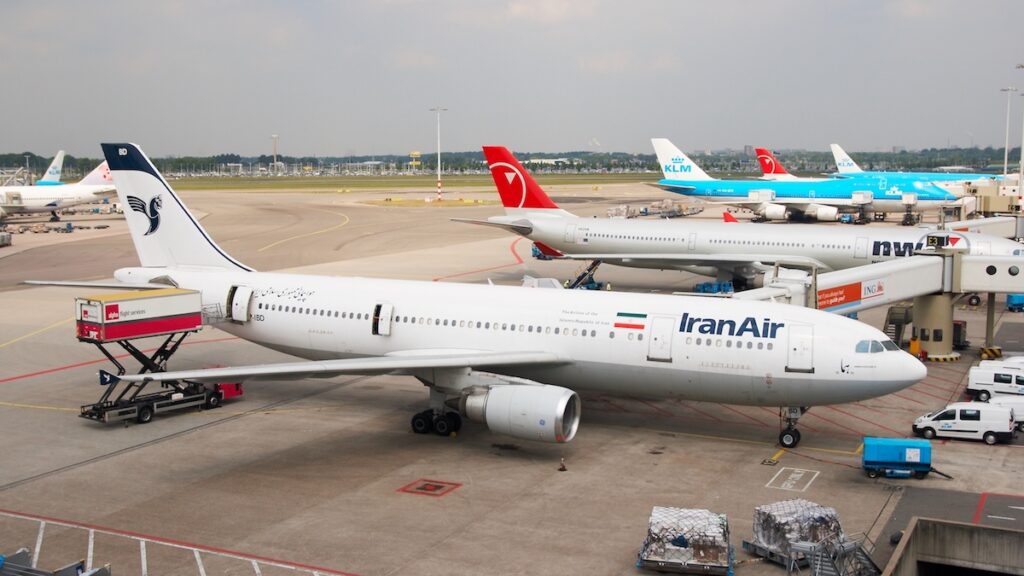Israel is firing the latest salvo in an air-only tit-for-tat conflict between Israel and Iran, with a number of aircraft disruptions.
If you're looking to book travel or sign up for a new credit card, click here. Both support his LiveAndLetsFly.com.
If you don't follow us on Facebook or Instagram, add us now.
Israel launches an offensive
Israel has launched attacks against Iran, but *is limited in scope (an earlier version of this post cited reports that seven cities were targeted in addition to strongholds in Iraq and Syria) However, it was later withdrawn). In the morning, Israel activated its air defense system, targeting targets across the country with a combination of missiles and drones.
The attack appeared to be much more limited than Iran's response last week, with one Iranian official saying just three small drones were sent and shot down without incident. Military targets included an air force base housing F-14 Tomcats and an Army radar station.
“According to the Iranian Space Agency, Iranian air defense forces shot down three drones believed to have been launched by Israel.
“They said we launched 500 suicide drones and missiles…Now they're responding with three of these quadcopters, but they've all stopped,” Iranian Space Agency spokesman Hossein Dalilian said. he said. write At X.
“They're just saying they didn't inform America before,” he added with a smiling emoji, an apparent jab at recent tensions in relations between Israel and the United States amid the ongoing war in Gaza. Ta. – Times of Israel
The scenery of Isfahan, the central city, looked peaceful. Rumors abounded that Iranian nuclear facilities were targeted, but this largely proved false.
How the conflict escalated
A few weeks ago, Israel assassinated a senior Iranian military official at the Syrian embassy in Iran, according to regional news agencies. Israel did this while continuing to fight in Gaza, with the war reaching almost 200 days. Unlike the beginning of the Gaza conflict, which was sparked by a surprise attack on Israel on October 7, Iran's attack was against officials from a country that has not yet opened fire on Israel, and the attack was also carried out by an Israeli ally. Not made in another country. The Gaza conflict took place at a diplomatic facility.
Iran responded by firing 300 rounds at Israel, but officials said most of them were shot down by U.S., British and Israeli forces, causing little damage.
Today's Israeli attack on Iran is a response to last week's events. Brent crude oil prices rose 3% on the news.
flight disruption
Iranian state television noted that Iran had taken defensive measures and closed its airspace as it launched the attack. Flights from the country's largest airport in Tehran were also closed.
“Dubai-based airlines Emirates and flydubai began diverting flights to near western Iran at around 4:30 a.m. local time. warning suggested the airspace may have been closed.'' – Associated Press
Has been updated:
“Flights to Israel are expected to remain grounded for several months amid rising tensions with Iran, but other routes may take longer as airlines avoid volatile regions.
British low-cost airlines easyjet announced on Tuesday that it would extend the suspension of flights to Israel for the remainder of the summer season until October 27 and offer refunds to customers who planned to fly.
rival Wizz Air resumed flights to Tel Aviv on Tuesday, but said it was monitoring the situation closely as passengers may experience “scheduling changes.”
dutch airlines KLM Royal Dutch Airlines announced that it has canceled flights to Israel until April 21 and is no longer flying over Iran and Israel. Air India said it has temporarily suspended flights to and from Tel Aviv and Tuesday's flights have been cancelled.
Germany's Lufthansa Group resumed flights to Tel Aviv, Amman in Jordan and Erbil in Iraq on Tuesday, but said flights to Tehran, Iran and Beirut were canceled until Thursday. It also said it was not currently using Iranian airspace. ” – CNBC
If the conflict escalates, there will be further chaos. Most Western countries have avoided overflying Ukraine and Russia, making Iran a key corridor from Europe to Asia without major deviations. If all-out war were to break out, airlines in Europe and Asia would have to make significant schedule adjustments to avoid conflict zones, or opt for total cancellations or technical outages.
conclusion
As tensions rise in the Middle East, further turmoil will ensue. Saudi officials have sought a peace deal with Israel that would normalize relations across the region. As the retaliation continues, this deal will become even more difficult to close.
What do you think?


